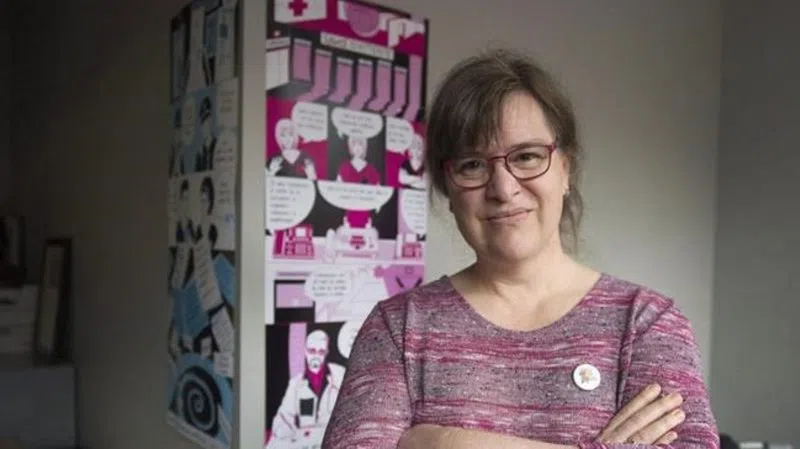
Funding for women’s group under review after call for ban on man-woman relationships
MONTREAL — The Quebec government says it will re-evaluate the $120,000 annual public funding it gives to the province’s biggest women’s federation after its president suggested that heterosexual relationships should be banned.
Gabrielle Bouchard, president of the Federation des femmes du Quebec, made the controversial comment Tuesday on Twitter, before issuing an apology on Facebook and during televised media interviews later in the day.
Bouchard says her original tweet was in reaction to news that a man out on parole after being convicted of killing his female partner had been arrested in the slaying last week of a 22-year-old woman in Quebec City.
In it she said heterosexual relationships were violent, mostly based on religion and possibly should be banned.


